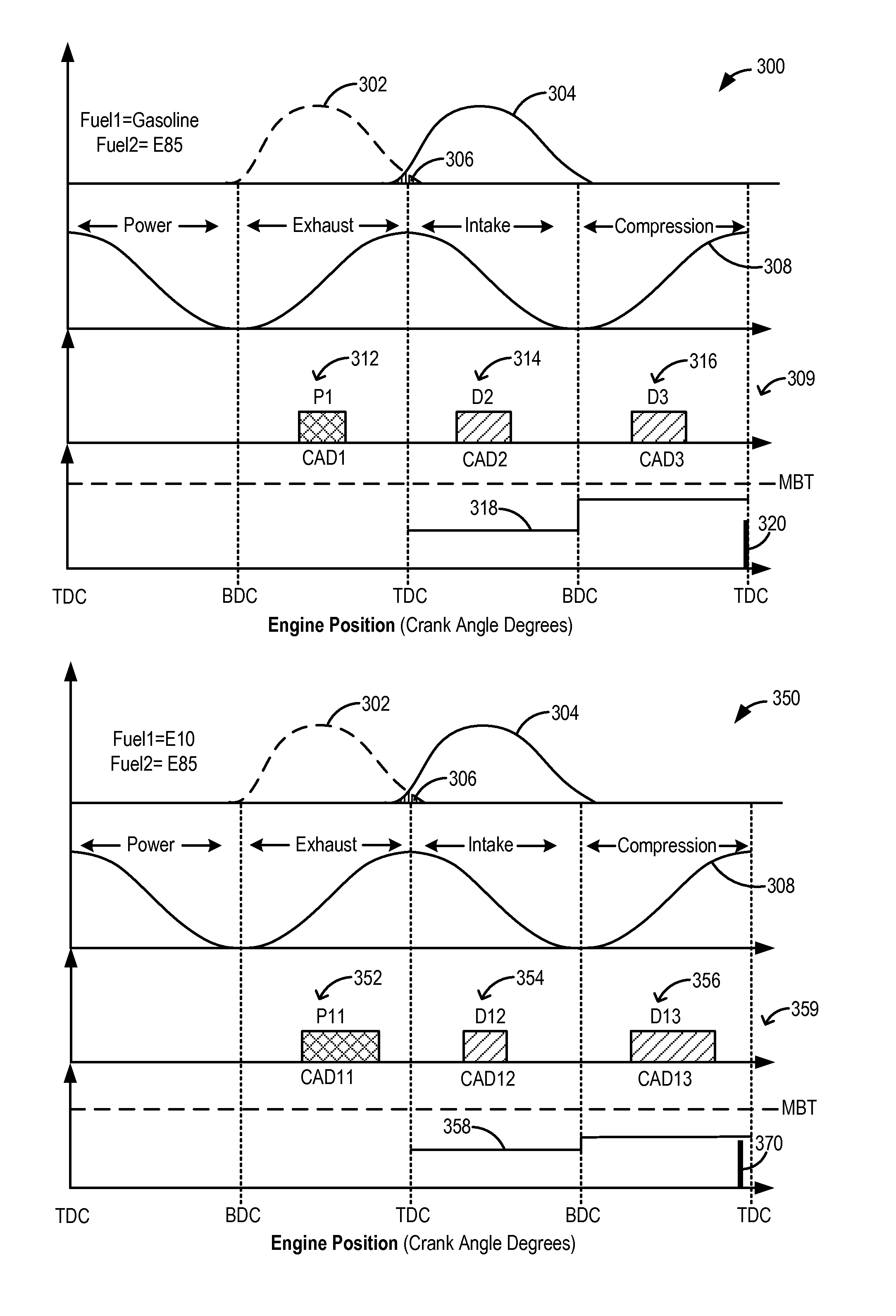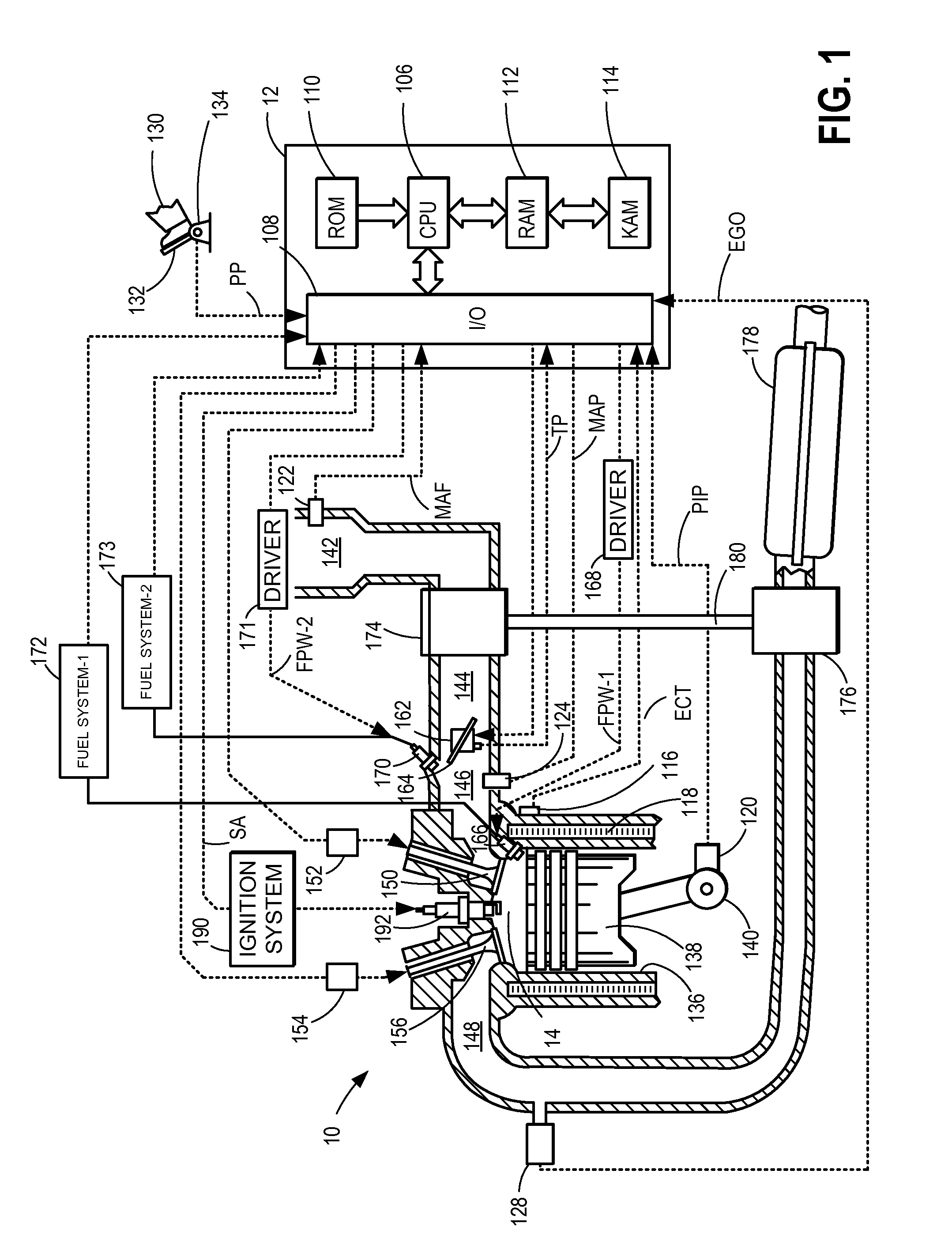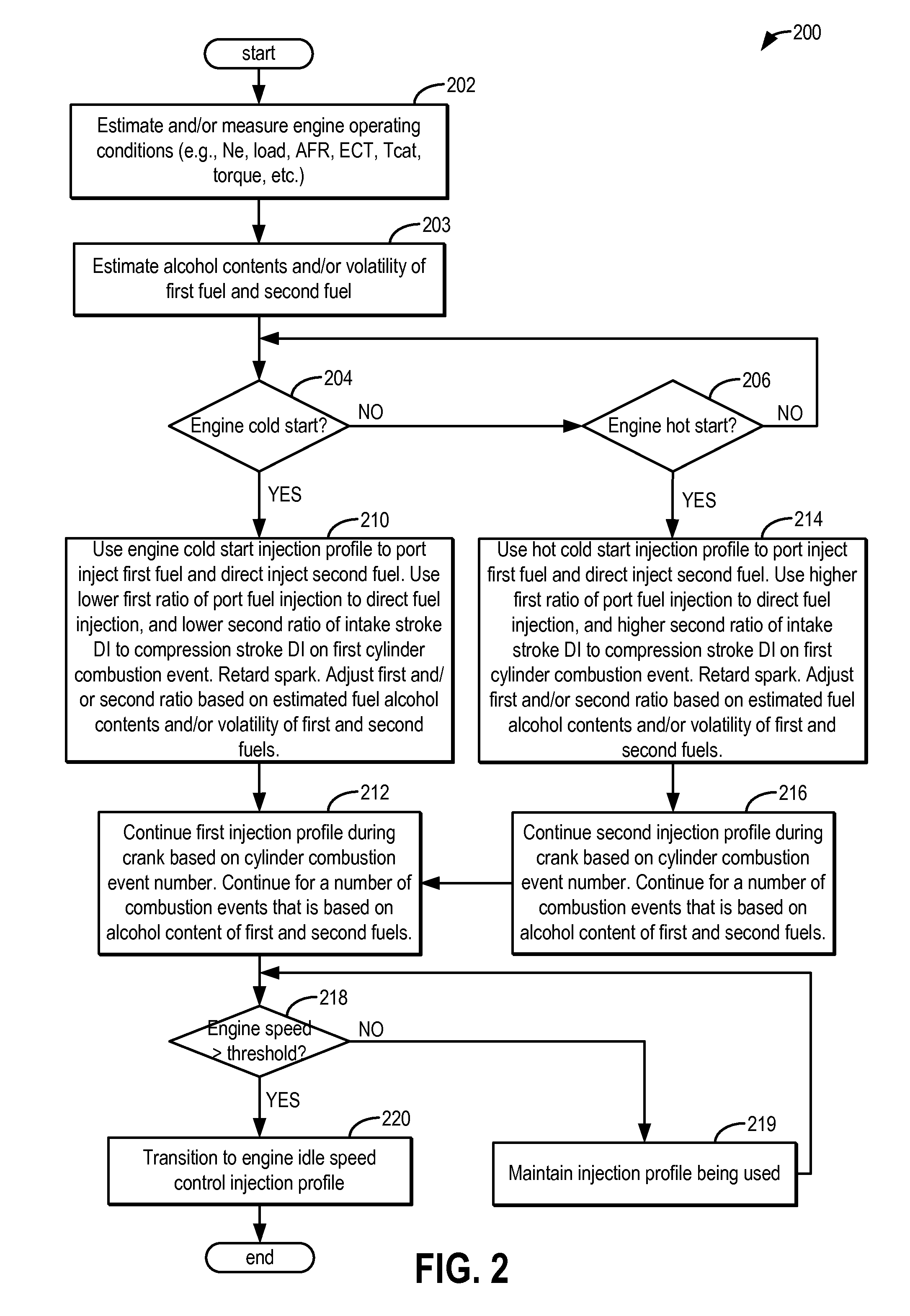Method and system for engine control
a technology of engine control and system, applied in the direction of electric control, ignition automatic control, machines/engines, etc., can solve the problems of degrading exhaust emissions, insufficient time for mixing of injected fuel and air in the cylinder, and generating more particulate matter emissions (or soot), so as to increase the heat of vaporization, increase the octane, and increase the charge cooling effect
- Summary
- Abstract
- Description
- Claims
- Application Information
AI Technical Summary
Benefits of technology
Problems solved by technology
Method used
Image
Examples
Embodiment Construction
[0014]The following description relates to systems and methods for adjusting an engine fuel injection in a multi-fuel engine system, such as in the engine system of FIG. 1, during engine start and crank to reduce a soot load of the engine. An engine controller may perform a control routine, such as the routine of FIG. 2, to adjust a fuel injection profile, including an amount of a first fuel port injected to a cylinder and an amount of a second, different fuel direct injected over multiple injections into the cylinder, during an engine start and during cranking. The profile may be adjusted based on the relative alcohol content of the first and second fuels as well as each of an exhaust catalyst temperature and a cylinder event number so as to expedite catalyst activation while reducing exhaust PM emissions and without degrading combustion stability. By using a fuel injection profile having a relatively higher amount of port injection of a first lower alcohol content fuel during engi...
PUM
 Login to View More
Login to View More Abstract
Description
Claims
Application Information
 Login to View More
Login to View More - R&D
- Intellectual Property
- Life Sciences
- Materials
- Tech Scout
- Unparalleled Data Quality
- Higher Quality Content
- 60% Fewer Hallucinations
Browse by: Latest US Patents, China's latest patents, Technical Efficacy Thesaurus, Application Domain, Technology Topic, Popular Technical Reports.
© 2025 PatSnap. All rights reserved.Legal|Privacy policy|Modern Slavery Act Transparency Statement|Sitemap|About US| Contact US: help@patsnap.com



